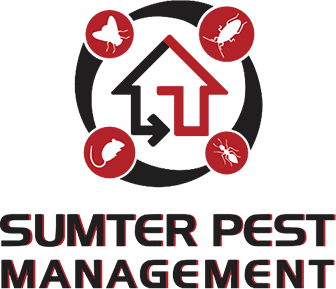
A Guide to Common Pest Identification in Sumter County, SC
If you find pests in your Sumter County home or business, you probably have many questions about them. Our Pest Library is the place to go for answers. It provides information about the pests that most commonly invade the properties in our area.
Ants
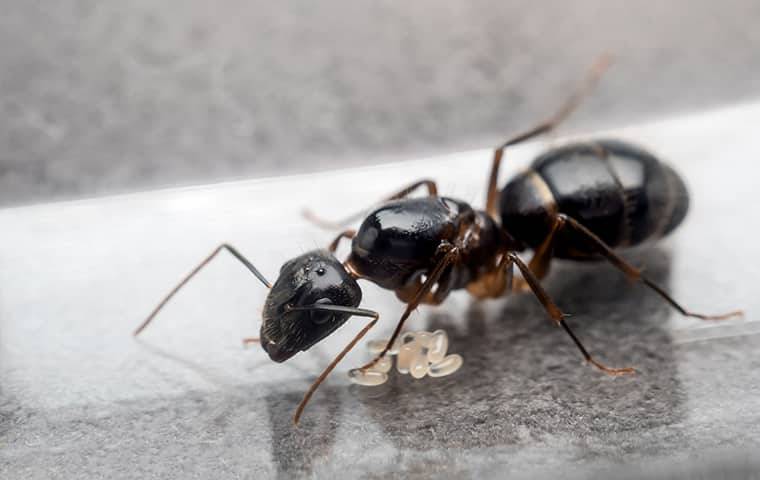
The mild weather in South Carolina allows many ants species to thrive and remain active throughout the year. Ants are a problem both in our yards and inside our homes. They use them as a place to forage for food to feed their large colonies and as a place to nest.
In our region, the most common types of ants we discover invading residential and commercial properties include fire ants, Argentine ants, carpenter ants, odorous house ants, and acrobat ants. Each species of ant will vary slightly in appearance, though they all share similar physical characteristics. Ants have a three-segmented body, short bent antennae, and six legs. You'll generally see them moving around your indoor or outdoor spaces together in long trails.
Ants are social insects and live in large groups, working together to maintain the nest and ensure the colony's success. Their ability to work together is a big reason why these pests are difficult to prevent or control. Ants maintain multiple nesting sites; they generally have a main nest and then one or more satellite nests. Each nest and all ants need to be found and treated; if that doesn't happen, a reinfestation will quickly occur.
Ants are adaptable, and almost any yard can become a nesting site. These insects typically nest underground in lawns, flowerbeds, gardens, landscaping ties, and woodpiles. The small size of the ant makes it easy for these pests to find a way into our homes; they typically move indoors while foraging for food. Once inside, if conditions suit them, they may decide to stay and build a satellite nest, choosing spaces behind your walls, under floors, behind cabinets, or above the ceiling.
To make your property less appealing to ants looking for food and a place to build their nest, we want to provide you with a few of our most helpful prevention tips:
- Limit their access to food in your yard by keeping lids on trash cans, picking up uneaten pet food, and maintaining gardens and outdoor eating areas.
- Prevent food odors from attracting ants into your house by washing dishes and removing trash from your home daily. Store food in the fridge or containers with airtight lids.
- Most ants are attracted to moisture. Reduce moisture in your yard by utilizing gutters that direct rainwater away from your property, repairing leaking pipes, and not overwatering your gardens or the lawn.
- Keep ants out of your house by regularly inspecting your its exterior. Use caulk or another appropriate material to seal any cracks discover. Place weather stripping around windows, doors, and vents leading into your home.
Bed Bugs
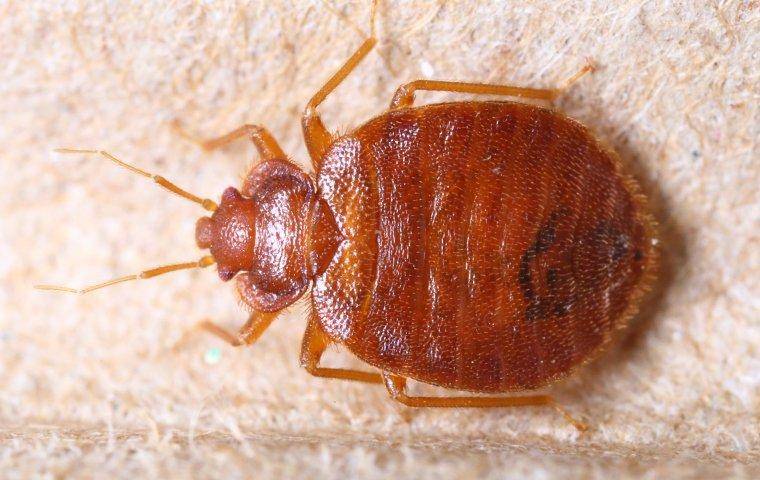
Bed bugs are small pests that feed solely on blood. These oval-shaped insects don't fly or jump, but they move with ease from place to place on people or our belongings. Bed bugs are nocturnal insects that live primarily indoors, feeding on their sleeping host's blood. These pests are associated with people because our blood is their preferred food source. Their affinity for humans means that bed bugs live successfully in almost any indoor space where there are people- homes, hotels, motels, airports, libraries, laundry mats, hospitals, schools, and dormitories.
Bed bugs are difficult to control because they are small in size, hide in hard-to-reach areas, and under the right conditions, can survive for months or longer without a blood meal. When bed bugs get into a home, they will initially take cover in sleeping areas because it puts them near their food sources. But, as their numbers grow, they will move throughout your home, infesting multiple rooms.
Knowing where some of their favorite hiding spots are is important, so you can regularly check those areas and identify an infestation in your house sooner rather than later:
- Seams of mattresses and box springs
- Upholstered furniture and rugs
- Behind baseboards and in the cracks of floors
- Inside wall cracks or behind wall hangings
- Electrical outlets or inside of electronics
- Piles of clutter
- Under dirty laundry
To make your property less appealing to biting, blood-feeding bed bugs, we want to provide you with a few of our most helpful prevention tips:
- Eliminate clutter in your house where bed bugs can hide.
- Don't let laundry sit on the floor for long periods.
- Use bed bug-proof covers on mattresses and box springs.
- Frequently vacuum your home to pick up any bed bugs before they have the chance to take over.
- Before bringing secondhand furniture, rugs, or clothing into your home, check it over for bed bugs.
- When traveling, always inspect where you will be spending the night for signs of bed bugs before bringing your belongings inside.
- Keep your belongings up off the floors of public places.
- Schedule professional bed bug treatments for your Sumter County home.
Cockroaches
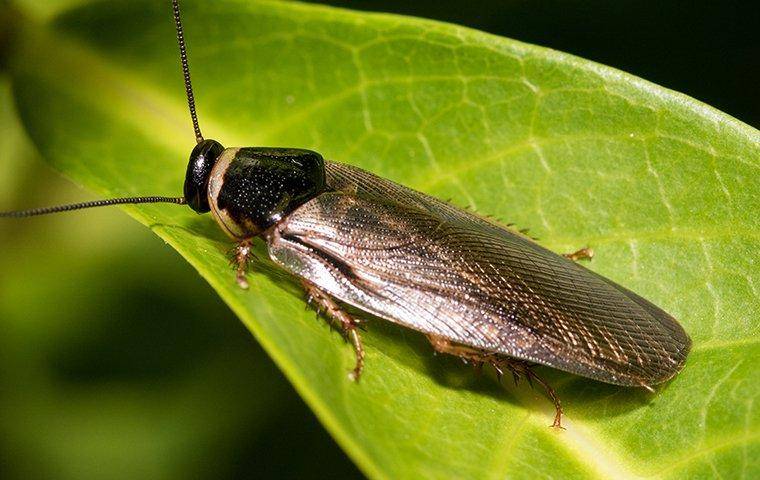
When living in the southern region of the United States, you will run into a cockroach or two and some point. These insects thrive in our humid, warm weather and quickly develop large populations. However, just because cockroaches are common in our region doesn't mean they should be a common sight in your South Carolina home or business. Cockroaches spread diseases, carry bacteria and parasites, trigger asthma, and contaminate food wherever they go. Keeping them out of our home and away from our family is important to everyone's health and safety.
Cockroaches have oval-shaped bodies, long antennae, and the ability to move quickly. Some may have wings, but most don't fly or are poor flyers. Cockroaches that live throughout South Carolina and regularly invade our properties include American cockroaches, German cockroaches, Oriental cockroaches, and smoky brown cockroaches.
Most cockroaches have high moisture needs and are attracted to areas with excess water. Outside our homes, damp mulch, overgrown vegetation, and ground cover often provide shelter for these pests. Most cockroaches move into our houses on their own after being attracted by food or moisture. In contrast, others get inside in things like boxes, deliveries, potted plants, or grocery bags. Once inside, they can develop large populations quickly, taking over the kitchen, pantry, bathrooms, and any other space that provides them access to moisture and food.
To make your property less appealing to cockroaches, we want to provide you with a few of our most helpful prevention tips:
- Always inspect deliveries, grocery bags, boxes, and secondhand furniture and appliances for cockroaches before bringing them into your home.
- Reduce excess moisture by repairing leaking pipes, keeping gutters clear, and using dehumidifiers in your home.
- Maintain a clean kitchen and vacuum and wash floors regularly.
- Routinely pull out large appliances to clean out behind and underneath them.
- Create a barrier between any mulch or landscaping plants and your home's exterior walls.
- Seal up spaces that naturally develop in your home exterior.
- Place door sweeps on exterior doors and weatherstripping around windows and vents.
Mosquitoes
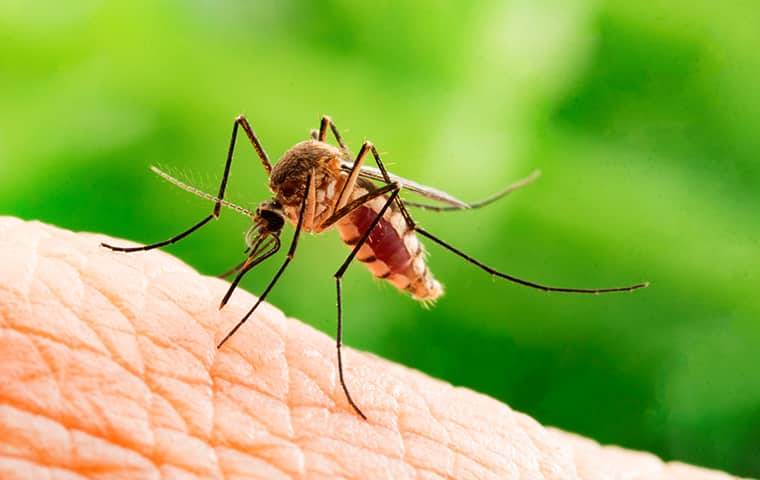
The mosquito is a type of fly, and the females must consume blood meals from animals and people to create viable eggs that will develop into new biting adults. These insects are primarily gray or black; sometimes, they have white stripes going across their abdomen and legs. Mosquitoes have distinctive long, bent legs and a long proboscis (an extended mouthpart) that the females use to obtain blood and that both males and females use to feed on plant nectar, which is their primary food source.
Mosquitoes are most problematic near areas of standing water as that is where the females lay their eggs. Properties near ponds, marshes, or with low-lying areas often experience problems with mosquitoes. Other places where standing water tends to collect and attract mosquitoes include trash cans, containers like buckets, clogged gutters, leaf piles, overwatered gardens, and tree stumps.
When it comes to mosquitoes, the temperature is the most crucial deciding factor as to whether these pests will be out and biting. For mosquitoes to feed and breed, the temperature needs to be above 50 degrees. Once the temperature goes below 50 degrees, mosquitoes tend to die off and become less of an issue for us.
In South Carolina, mosquito season usually runs from early spring to sometime in the late fall. Knowing when mosquitoes are most active is important so you can protect yourself from their itchy, dangerous bites. The less contact you have with mosquitoes, the less likely you will come into contact with one of the diseases these pests are known for spreading during their feeding process.
To make your property less appealing to mosquitoes, we want to provide you with a few of our most helpful prevention tips:
- Use outdoor fans in seating areas to help blow these weak flyers off course and help prevent them from reaching you to deliver their bites.
- Eliminate as much standing water from your yard as possible.
- Make sure screens in windows and doors are intact and secure and lace weatherstripping around windows and doors to keep mosquitoes out of your home.
- Reduce areas of overgrown vegetation on your property that will provide mosquitoes with places to rest.
Rodents
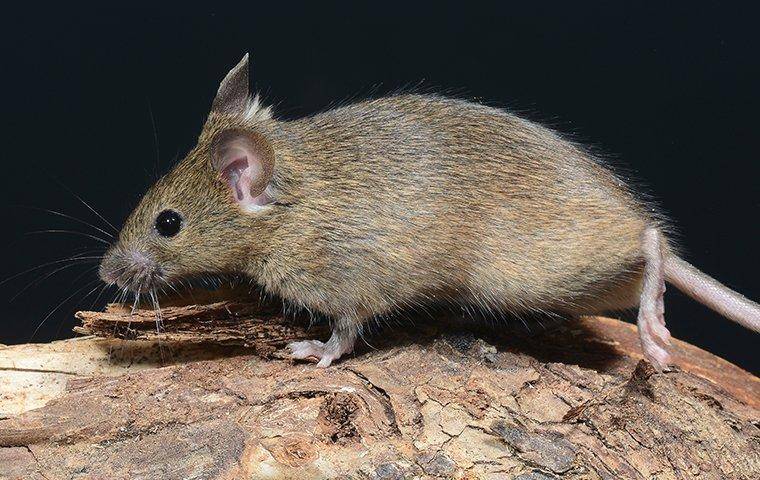
A few different types of rodents live in our region that regularly invade our properties: the house mouse, Norway rat, and roof rat. Rodents are mammals that are all identified by their continuously growing front incisors. These animals are regular invaders of our urban, suburban, and rural properties. Unfortunately, when rodents and people collide, nothing good comes of it. Rodents are destructive pests that damage properties, contaminate food sources, and also spread diseases and parasites.
Rodents can become a problem for South Carolina property owners any time of the year; they are most likely to move indoors when the weather cools down, and there are fewer food sources. Rodents have high metabolisms, and reliable food and water sources are crucial to their survival. Rodents have fairly flexible skeletons and can move indoors through the smallest of spaces in exterior walls. Rodents are a tough problem for homeowners because they want to live with us and take advantage of the amenities our properties offer them. In addition, they are prolific breeders, quickly taking over spaces that provide them with their basic needs.
To make your property less appealing to unwanted rodents, we want to provide you with a few of our most helpful prevention tips:
- Keep lids on trash cans and maintain gardens and fruit trees to prevent rodents from foraging there.
- Make sure to regularly inspect the outside of your home, repairing any cracks, holes, or gaps you discover, no matter how small.
- Cut back tree branches and shrubbery from your home.
- Remove clutter from your yard and your home's storage areas to reduce harborage areas.
- Repair leaky pipes and low-lying areas that collect rainwater to remove their water sources.
- Keep your kitchen area and outdoor eating areas free of food debris.
- Keep food storage areas in your house clean and free of crumbs and spills.
Termites
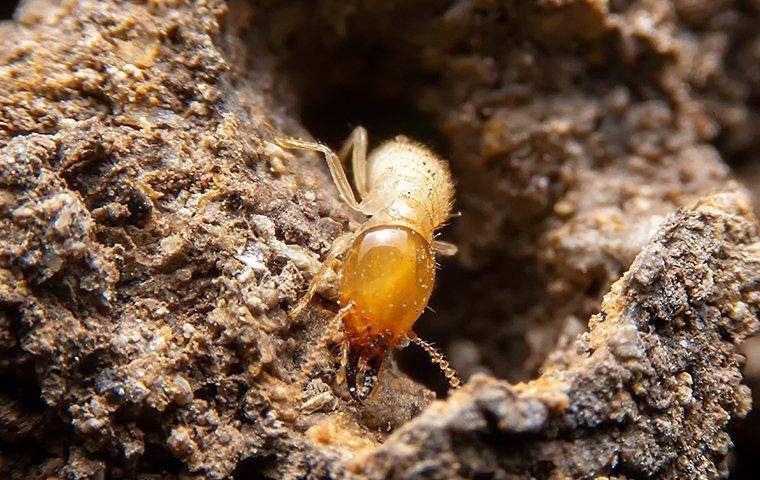
There are so many benefits to living in South Carolina: friendly people, great weather, and plenty of outdoor activities. Unfortunately, living in South Carolina isn't all sunshine and rainbows. Our region is a hotbed for termite activity. The warm, humid weather, damp soil, and amount of trees, wooden structures, and buildings provide plenty of food sources for hungry termites to feed on, allowing them to thrive. One of the most widespread species of termites living in South Carolina and across the country is the eastern subterranean termite. These termites have high moisture needs and require constant contact with damp soil or the interior portion of wood.
Termites are social insects and live together in caste systems; each caste has a job to perform for the colony. The worker termites are the most numerous members and leave the nest each day to travel to their found food sources. Termites don't sleep; they work 24/7 to gather enough food to feed their colony.
When termites have found a way into our homes or other structures, their unmatched work ethic means that they can cause costly and extensive damage. Eastern subterranean termites prefer to feed on damp or water-damaged wood. Inside homes and other structures, termites typically attack wood behind walls, under floors, and above ceilings near water pipes or in poorly ventilated areas. Water-damaged wood provides the perfect food source for termites.
To make your property less appealing to termites, we want to provide you with a few of our most helpful prevention tips:
- To make your yard less attractive to hungry termites, remove wood that makes direct contact with the damp ground like fallen trees, tree stumps, porch steps, deck posts, and wooden fencing.
- Make repairs to things that could allow water to build up near your house such as leaky pipes, clogged gutters, and missing shingles or siding.
- Create a barrier between any soil or mulch and your foundation.
- Seal cracks that develop in the foundation of your house.
- If wood within your house becomes damaged by water, immediately replace it.
Custom Solutions For Your Sumter County Pest Problems
With over 25 years in the pest control industry, you can trust Sumter Pest Management to protect your home or business from pests! To learn more our home pest control and commercial pest control solutions, give us a call today!

What We're All About
- We always strive to provide the best service at the best value.
- We are a faith-based company. We work with honesty and integrity.
- We offer same-day and emergency services.
- We provide free inspections and quotes.
- We have over 25 years of experience solving pest problems.
- We offer personalized service and support, no matter the pest problem.
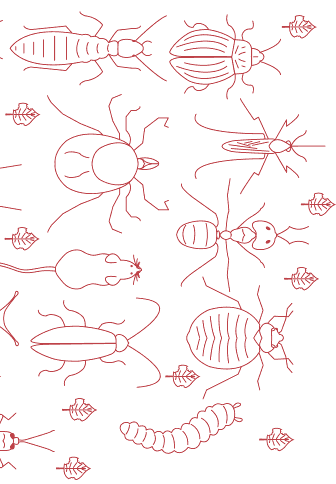
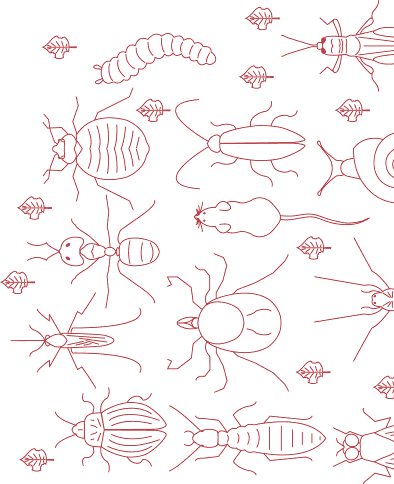
Apply Today!
Fill out the form to get started.
